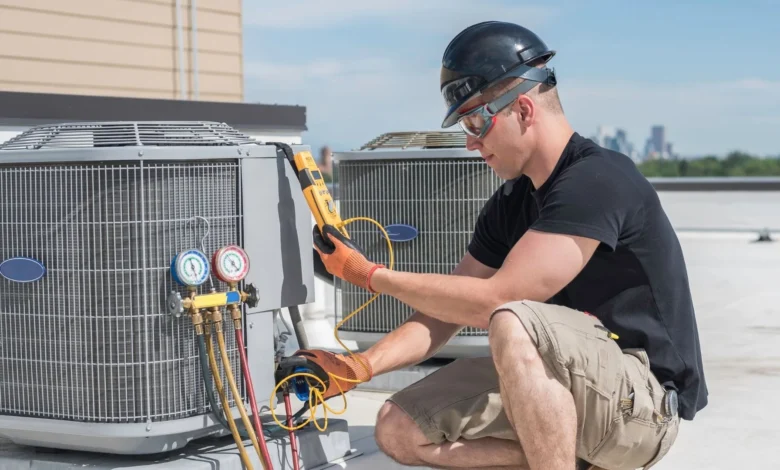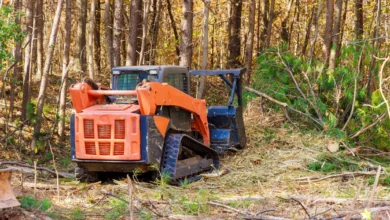The Complete Guide to Long-Term HVAC System Reliability

HVAC systems play a crucial role in maintaining a comfortable and safe indoor environment, whether it’s during the scorching heat of summer or the freezing chill of winter. Heating, Ventilation, and Air Conditioning (HVAC) systems are found in nearly every modern building, working behind the scenes to regulate temperature, humidity, and air quality. Despite their importance, these systems often go unnoticed until something goes wrong.
To ensure optimal performance and avoid unexpected breakdowns, it is vital to understand the components of an HVAC system, how they operate, common signs of wear, and how a proper maintenance strategy can keep everything running smoothly. This article offers a comprehensive overview of HVAC system care, best practices for preventative upkeep, energy efficiency tips, and how to determine when repairs or replacements are necessary.
What is an HVAC System?
An HVAC system is a network of equipment that controls indoor climate and air quality. The primary components of a typical HVAC system include:
- Furnace or Heat Pump: Provides warmth during colder seasons.
- Air Conditioner or Cooling Coil: Regulates cooling during hot weather.
- Ventilation System: Includes ducts, filters, and vents for distributing air throughout the building.
- Thermostat: Serves as the control panel, allowing users to set their preferred temperatures.
- Air Handlers and Blowers: Circulate air through the ducts and into individual rooms.
Each component plays a vital role in the overall operation, and failure in one part can compromise the efficiency and comfort provided by the entire system.
Why Preventive Maintenance Matters
Many people underestimate the significance of routine HVAC upkeep. Preventive care is about more than just fixing problems as they arise—it’s about avoiding them altogether. Here are the main benefits of a strong maintenance strategy:
- Improved Efficiency: Clean and well-calibrated systems use less energy, which translates into lower utility bills.
- Extended Equipment Lifespan: Regular inspections and adjustments reduce strain on components and extend their usable life.
- Enhanced Indoor Air Quality: Filters, coils, and ducts free of dust and debris improve the air you breathe.
- Reduced Repair Costs: Identifying issues early prevents major malfunctions that are expensive to fix.
- Consistent Comfort: Well-maintained systems provide even and reliable heating and cooling.
A routine hvac maintenance schedule can prevent costly disruptions and contribute to a healthier and more comfortable indoor environment year-round.
Common HVAC System Issues
Even the best systems are prone to occasional problems, especially if they’ve been running for years or if maintenance has been neglected. Here are some of the most common issues encountered:
1. Dirty or Clogged Filters
Filters trap dust, pollen, and other airborne particles. Over time, they become clogged and restrict airflow, forcing the system to work harder and decreasing its efficiency.
Solution: Replace filters every 1–3 months depending on usage and environmental conditions.
2. Refrigerant Leaks
Leaking refrigerant can impair cooling capacity and may damage the compressor.
Solution: Only a licensed technician should handle refrigerant issues, including leak detection and recharging.
3. Faulty Thermostat
When thermostats malfunction, they can misread temperatures or fail to trigger heating or cooling cycles.
Solution: Calibrate or replace the thermostat. Consider upgrading to a smart thermostat for better control and efficiency.
4. Mechanical Wear and Tear
Belts, bearings, and motors can wear out, leading to poor performance or system failure.
Solution: Regular inspections and timely replacements can prevent wear-related issues.
5. Drainage Problems
Condensate drain lines can become clogged, causing water leaks and promoting mold growth.
Solution: Periodically flush the drain line and check for obstructions.
Understanding these potential issues allows for quick troubleshooting and effective preventative action.
Seasonal Maintenance Guidelines
Effective HVAC care is not a one-time task—it should follow a seasonal pattern to ensure your system is prepared for the demands of changing weather conditions.
Spring and Summer Focus
- Clean or replace air filters.
- Inspect and clean condenser coils.
- Check refrigerant levels and inspect for leaks.
- Clear vegetation and debris from around the outdoor unit.
- Test the thermostat for proper function.
- Ensure all air vents are open and unobstructed.
Fall and Winter Focus
- Inspect and test the heating system, including burners and ignition systems.
- Check the heat exchanger for cracks or signs of damage.
- Clean blower components and lubricate motors.
- Test carbon monoxide detectors for safety.
- Insulate exposed ductwork to improve heat retention.
- Clean and adjust the pilot light and gas pressure (if applicable).
A thorough hvac maintenance routine that aligns with seasonal demands helps the system transition smoothly from one season to the next while maintaining peak performance.
DIY HVAC Maintenance Tips
While some tasks are best left to professionals, there are several things property owners can do to maintain their systems and improve efficiency:
- Change filters regularly to prevent restricted airflow.
- Vacuum air vents and registers to keep them free of dust and debris.
- Keep outdoor units clear of leaves, branches, and other obstructions.
- Inspect insulation around ducts and replace worn-out sections.
- Monitor energy bills for sudden spikes, which could indicate system inefficiency.
- Listen for unusual noises such as banging, clanking, or whistling.
These small efforts, performed regularly, can make a significant impact on system performance and longevity.
When to Call a Professional
While many aspects of maintenance are manageable for the average homeowner, professional inspections are essential at least once per year—preferably before the start of each heating and cooling season.
Technicians offer the following services during professional maintenance:
- Comprehensive system inspection.
- Cleaning internal components, including coils and blowers.
- Checking refrigerant pressure and electrical connections.
- Testing thermostat calibration and system safety controls.
- Providing a maintenance report and recommendations for repairs or upgrades.
Working with a certified technician ensures that your system is not only functional but also operating at peak safety and efficiency levels.
Energy Efficiency and HVAC Systems
Energy conservation is becoming increasingly important, and HVAC systems are a major contributor to household and commercial energy use. Implementing efficient practices can make a difference:
- Upgrade to a high-efficiency system (look for ENERGY STAR-rated models).
- Install programmable or smart thermostats to optimize usage based on occupancy.
- Seal air leaks around windows, doors, and ducts.
- Perform regular maintenance to prevent energy waste due to malfunctioning components.
- Use ceiling fans to circulate air more effectively.
Improving energy efficiency not only lowers utility costs but also reduces environmental impact and improves indoor air quality.
HVAC System Replacement Considerations
Despite excellent care and routine hvac maintenance, all systems eventually reach the end of their useful life. Signs that replacement may be necessary include:
- Frequent repairs and increasing maintenance costs.
- Rising utility bills with no change in usage.
- Inconsistent or inadequate heating and cooling.
- System age beyond 12–15 years.
- Use of outdated refrigerants like R-22.
New systems offer better efficiency, reduced noise, and advanced features such as zoning capabilities, smartphone integration, and automated diagnostics. When choosing a replacement, consider system size, compatibility, and energy ratings. Consult with a trusted HVAC professional for guidance.
Choosing the Right Maintenance Partner
A trustworthy HVAC service provider should be:
- Certified and licensed by recognized industry organizations.
- Transparent with pricing and service offerings.
- Experienced with a variety of systems and brands.
- Backed by positive reviews and customer references.
- Willing to provide ongoing service plans for regular upkeep.
Establishing a relationship with a reliable HVAC technician can provide peace of mind and long-term system reliability.
Conclusion
HVAC systems are central to the comfort, health, and productivity of indoor environments. While they may operate in the background of daily life, neglecting their care can lead to uncomfortable consequences, high costs, and system failure. Routine hvac maintenance is a smart and necessary investment that enhances performance, extends equipment life, and protects against surprise breakdowns.
By understanding your system, performing regular DIY care, and scheduling professional service, you can ensure that your HVAC system serves you reliably through every season. Don’t wait until there’s a problem—start your maintenance routine now and enjoy peace of mind and comfort all year long.




